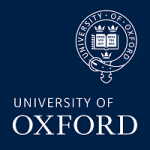项目介绍
About the course
The DPhil offered by this EPSRC funded Centre for Doctoral Training (CDT) in Future Propulsion and Power provides graduates with the opportunity to develop in-depth knowledge, understanding and expertise in aircraft propulsion and gas turbines. This is a joint programme between the Universities of Cambridge, Oxford and Loughborough, together with leading engine manufacturers and partners in the field.
In the first year, all students study for a master’s degree in Future Propulsion and Power at the University of Cambridge. In years two to four, Oxford’s students will undertake industrially-focussed projects at the Oxford Thermofluids Institute – also known as Osney Laboratory – in the Department of Engineering Science.
Year one is oriented towards developing your knowledge base. Along with CDT students from Cambridge and Loughborough, you will register and study for an MRes degree in Future Propulsion and Power at the University of Cambridge. The course involves taught lectures and laboratory modules, along with several mini projects of two to three weeks each undertaken at the three partner universities and at some of the sites of the industrial partners. These are precursors to your DPhil study, to hone your research skills and shape your main research area. You will meet your supervisor regularly to assess progress and discuss academic issues.
Years two to four see an increasing emphasis on individual research. Oxford’s students register for the degree of DPhil and carry out a research project at the Oxford Thermofluids Institute, an internationally-recognised centre for research in Gas Turbine Heat Transfer and Aerodynamics, and part of Oxford’s Department of Engineering Science. You will benefit from the network of leading experts in the field, and develop a portfolio of academic, laboratory and career-oriented skills. Throughout of the research project, close interaction with an industrial partner is expected. In addition, the full cohort meets regularly for CDT seminars and workshop events.
Supervision
The allocation of graduate supervision for this course is the responsibility of the Department of Engineering Science, in conjunction with the University of Cambridge, and it is not always possible to accommodate the preferences of incoming graduate students to work with a particular member of staff. Under exceptional circumstances a supervisor may be found outside the Department of Engineering Science.
Assessment
You will be assessed continually throughout the first year at Cambridge during courses and projects, and will be formally examined in your MRes programme. At the end of your second year in Oxford, you will be required to write a report and give a presentation on your research, and to present a detailed and coherent plan for the research-intensive phase in the third and fourth years of your doctoral studies. Progress towards completion is again formally assessed some way into the final year of study.
For the DPhil, you will be required to submit a substantial thesis that will be read and examined by experts in the field, one from the Department and one from elsewhere. Often the thesis will result in the publication of several journal and conference papers.
Graduate destinations
It is expected that the in-depth training and exposure to research problems of vital interest to industrial partners in the CDT in Future Propulsion and Power, along with the progressive increase in responsibility and external exposure, will make graduates from the CDT well equipped for leadership roles in industry, both nationally and internationally.
Others may wish to continue to spend time in postdoctoral research, probably further developing the work in their theses towards commercial application.
Changes to this course and your supervision
The University will seek to deliver this course in accordance with the description set out in this course page. However, there may be situations in which it is desirable or necessary for the University to make changes in course provision, either before or after registration. The safety of students, staff and visitors is paramount and major changes to delivery or services may have to be made in circumstances of a pandemic (including Covid-19), epidemic or local health emergency. In addition, in certain circumstances, for example due to visa difficulties or because the health needs of students cannot be met, it may be necessary to make adjustments to course requirements for international study.
Where possible your academic supervisor will not change for the duration of your course. However, it may be necessary to assign a new academic supervisor during the course of study or before registration for reasons which might include illness, sabbatical leave, parental leave or change in employment.
For further information please see our page on changes to courses and the provisions of the student contract regarding changes to courses.
录取要求
-
a first-class or strong upper second-class undergraduate degree with honours, usually in engineering with some specialisation in fluid mechanics and thermodynamics.
-
Candidates with undergraduate degrees from related fields will also be considered.
-
A previous master’s qualification is not required.
联系方式
电话: +44 1865 270000相关项目推荐
KD博士实时收录全球顶尖院校的博士项目,总有一个项目等着你!




